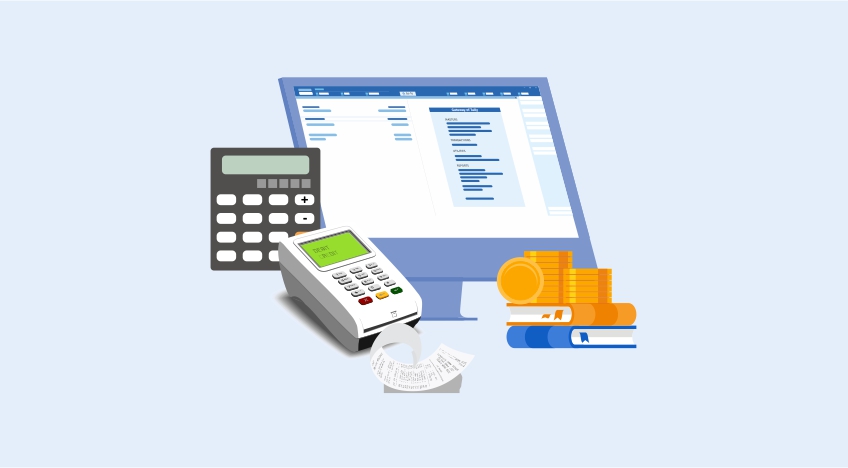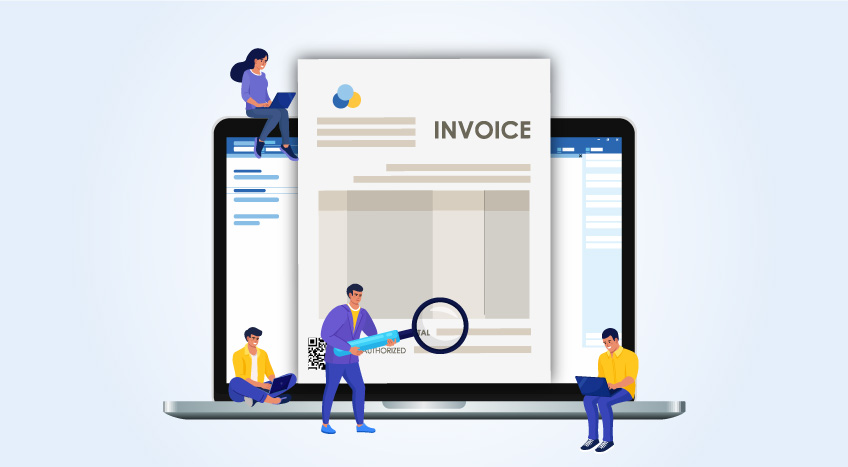- What is an EFD Machine?
- Functions of Electronic Fiscal Device
- EFD upgradation mandate by TRA
- Benefits of using upgraded EFD machines
- Different types of EFD Machines used in Tanzania
- EFD offences
As per the upgraded electronic financial data management system (EFDMS) of the Tanzania Revenue Authority (TRA), all tax paying businesses are required to use Electronic Fiscal Device (EFD Machine) for issuing tax invoices which gets auto verified by the EFDMS. The latest reform aims at simplifying and enhancing voluntary tax payment by businesses across Tanzania.
|
Have You Ever Thought Managing VAT Compliance Is as Easy as 1,2,3? |
What is an Electronic Fiscal Device or EFD Machine?
Electronic Fiscal Device or EFD Machine is a user-friendly business device designed for issuing receipts/invoices for the sale of goods or services. The device enables the systematic management of sales analysis and stock control, strictly adhering to the legal mandates.
Functions of Electronic Fiscal Device
The primary functions of the EFD Machine include:
- Recording sales and issuing fiscal receipts in the form and manner prescribed by TRA
- Receiving, manipulating, transmitting to the system, storing and printing information as entered by the user
- Creating an in-built reconnection reports of fiscal memory
- Receiving and displaying alert messages from operations resulting from errors or malpractices
- Instantly storing all tax related information
- Recording any errors that occur during transactions
EFD upgradation mandate by TRA
Introduced under the EFD Regulation 2010, EFD Machines are to be used for all business transactions related to goods or services and involving users. Users, as defined by the regulation, are all taxable persons and any person who may be appointed by the Commissioner as eligible for registration as user through a notice published in the Government Gazette.
As per the recent TRA mandate, all tax paying businesses should upgrade their EFDs to Protocol 2.1 that facilitates auto signing from the portal. Further to the auto verification by EFDMS, a QR code and verification code gets embedded to the invoice, validating the genuineness of the invoice. The upgraded EFDMS accepts only those EFD invoices with verification code for input tax claims. Invoices without verification code shall be rejected automatically.
Businesses should confirm with the TRA approved EFD suppliers whether their existing devices can be upgraded to generate verification and QR codes on invoices, complying with the new EFDMS requirement. In cases where EFD machines cannot be upgraded, the businesses are required to buy new EFD machines that comply with the new EFDMS requirement. When traders opt for new EFDs, the old one should be handed over to the TRA office.
What are the benefits of using upgraded EFD machines?
The upgraded EFD machines are highly beneficial to the taxpayers as well as the authorities. Some of the major advantages are enlisted below:
- Ease of ascertaining the authenticity of invoices: With the embedding of QR codes on invoices, the genuineness of receipts can be effortlessly determined
- Enhanced cost efficiency: The new system is designed to improve the overall efficiency of the tax administration, thereby imposing better cost control.
- Automatic verification: With the new reform, receipts are auto verified by EFDMS on a real-time basis. This helps in saving a lot of time
- Receipt verification in case of faded receipts: Previously, faded receipts produced in support of input tax claims were disregarded by the tax administration. However, with the introduction of QR codes in receipts, verification will no longer be challenged.
What are the different types of EFD Machines used in Tanzania?
In Tanzania, there are four types of EFD machines currently in use:
- Electronic Tax Register (ETR)
Electronic Tax Register is used by retail businesses that manually issue receipts and invoices. ETR determines the tax value for every transaction made, stores the data in a permanent memory that can be accessed only by the tax agency.
- Electronic Fiscal Printer (EFP)
Computerized retail outlets use Electronic Fiscal Printer which is connected to a computer network, storing all the transaction data and particulars in the fiscal memory
- Electronic Signature Device (ESD)
ESD authenticates financial documents with the help of a specially designed computer program. The machine generates a unique number (signature) which gets embedded and printed on every invoice generated by the user’s system.
- Electronic Fiscal Pump Printer (EFPP)
Designed for petrol stations, EFPP is connected to a pump and it prints a receipt every time a sale transaction happens.
What are the EFD offences?
Definition of EFD offenders
The Tanzania Revenue Authority defines EFD offenders as any individual who
- Fails to procure and implement an EFD machine upon starting business operations in Tanzania or post the expiry period as specified by the Commissioner General
- Misses to issue a fiscal invoice of receipt after receiving payment related to the sale of a service or product
- Generates a fiscal invoice with incorrect and misleading information in terms of material particulars
- Makes use of the EFD to mislead, in any manner, the system or the Commissioner General
- Interfere with the EFD machine, making it function inappropriately and thereby generating incorrect and fabricated documents
Penalty for EFD offences
EFD offenders are liable to a fine that is not less that 200 currency points and not exceeding 300 currency points or to imprisonment for a tenure not more than 3 years or both. The mentioned offences are not applicable to individuals who are exempted by the tax laws in terms of acquiring and implementing the EFD.
In the case of an individual who fails to claim or notify the authorities about the refusal to issue a fiscal invoice post payment for a sale of a service or goods, an EFD offence is said to be committed. The offender in this case shall be liable upon conviction to a penalty not less than 2 currency points and not exceeding 100 currency points.
Tax evasion is considered a serious offence and the offender upon conviction is liable to a fine that is double the amount of tax evaded or imprisonment for a tenure not more than 3 years.
Read More:










